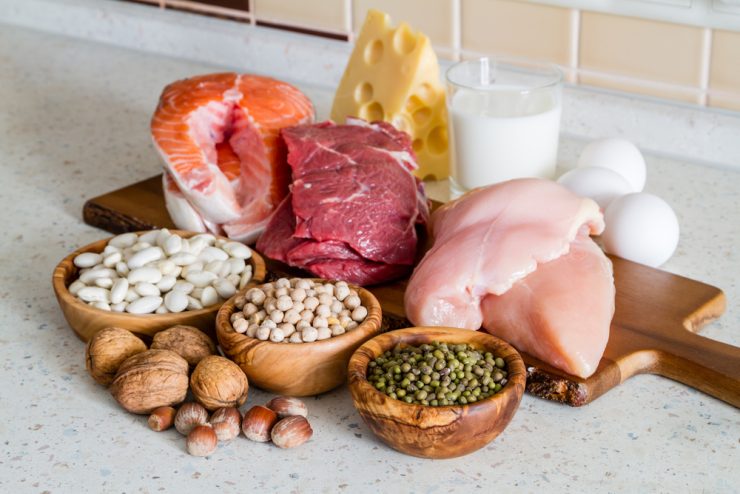“I am a 45-year-old woman and confused as to how much protein I should be including in my daily diet. Can you advise?”
Clinical Nutritionist Suzie Sawyer replies.
This is a common question and there are a few correct answers! Generally many people’s diets are too low in protein so it’s important to understand a little more about its importance in overall health before we look at how much we need.
WHAT DOES IT DO?
Protein is a key part of every cell in the body. Indeed, it’s second only to water in terms of the body’s physical make-up. Our skeletal frame is made up of protein as is our skin, hair and nails. Moreover, it is essential for building hormones, tissue repair, enzyme production and other chemical reactions. It’s an important building block of bones, muscles, cartilage and blood and also plays a key role in the immune system. In short, protein is essential for overall health.
WHERE IS IT FOUND?
There are animal and vegetable sources of protein. For example, meat, fish, dairy, eggs, chicken and turkey are all good animal sources. Plant foods include beans, lentils, quinoa, wholegrains, soya, hemp, nuts, seeds and vegetables. Plant-based proteins generally need to be combined (beans and grains) in order to get the essential amino acid profile you need that make up ‘complete’ proteins. However, you can get all the protein your body needs from animal or vegetable sources.
WHY DO PROTEIN REQUIREMENTS VARY?
As with all nutrients, needs change throughout life. If you do a very active job you will obviously need more than someone with a more sedentary lifestyle. Interestingly, because protein is so important for growth, babies actually need more than adults in relation to their body weight.
There’s also a difference between a body builders’ requirements and those of a recreational athlete working out three or four times a week. However, we tend to underestimate our needs, which explains why many of just aren’t eating enough.
HOW MUCH DO I NEED?
This question is not so easy to answer! However, it’s generally dependent on body weight.
A man will normally require more than a woman but a good rule is around 0.8 grams per kilogram of body weight per day. This means a woman weighing 60 kilos will need around 48 grams per day as a minimum. And pregnant women should generally have a minimum of around 70 grams in order to feed and nourish their growing baby. As a point of reference, a normal-sized chicken breast will contain around 20 grams of protein.
Interestingly, many women worry that eating too much will cause them to ‘bulk up’. Certainly, there are a number of body-builders that do over-consume protein but generally, the popular, highly refined Western diet contains too little protein, which can lead to muscle wastage, hormone imbalances and lack of blood sugar control.
The simple answer is – make sure you include some protein at every meal to ensure your body is getting enough.
























Add comment